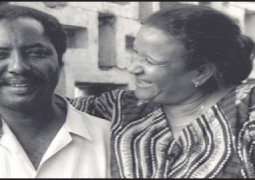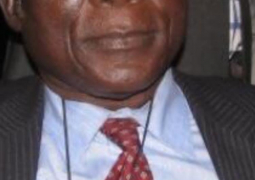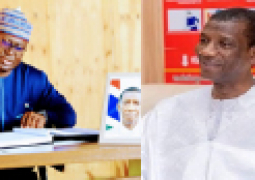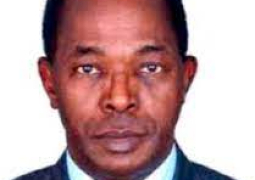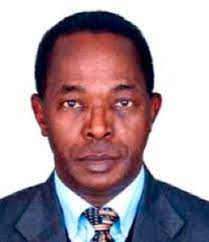
Later, he turned his back on them and termed them as ‘enemies’ in the political field. The change of attitude towards the majority population led to his eventual fall from power. The era of political ignorance is over and that political maturity is very much into the democratic mindset of the people. Most importantly, there is a new wave of generational consciousness that transcends tribal, regional, religious, parental control and monetary inducements. We have seen what happened in VOTE 2024 in Senegal. It will be a tragic mistake for our politicians to continue to dream and rely on tribalism and money for political gains. One who speaks the LANGUAGE OF THE PEOPLE will have the upper hand in the race to the seat of power in 2026. Speaking the local language is not what is being implied here. I am talking about a strategic political mobilization platform that augurs well with the wishes and aspirations of the Gambian people. It has been proven over the years that the politics of castigations, sycophancy and procrastination does not hold water in Gambian political equation. Instead, it makes the people afraid that the Party that engages in such a style of politics is troublesome and could usher in vindictive governance when they are in power. Political Parties must therefore, necessarily be concerned about their image in the eyes of the electorates. When the track record of a Party is seen as tainted with insults and personality attacks, such a Party will be rejected by those who love peace and development in the country. When incumbency politics is overstated and stretched too far in political action, it diminishes support for the Party as it breeds a climate of dictatorial tendencies in the political system. If the climate of fear and doubts continue to prevail in the minds of the people, the country could experience surprising outcomes in the 2026 elections.The wind of change can blow in the direction of a third Party or towards a Coalition of like-mindedness politicians and Parties in the event of intense tribal confrontations and personality attacks from the main contenders in the electoral process. It all depends on the conduct of competitive politics. It has been observed that Parties have already started to test the ground ahead of the next Presidential elections. It has been widely rumored that there will be new players in the political terrain that will make the process complex and unpredictable in outcome. Experience has shown both in this country and elsewhere that power politics does not hold water in today's politics due to the rising political consciousness of the people. It could be concluded therefore, that overconfidence and overestimation in the political process are not the best approach for a winning candidate. The mode of political mobilization is therefore, to be proceeded with caution. It can break or make a Party flourish.
The current style and political rhythm in the country makes me wonder whether in fact, Parties are getting knowledge on the demographic and statistical data base of the electoral situation. This is apparent in the face of the heavy concentration on rural politics instead of urban politics. Gender discrimination, Youth marginalization and voting behavior, etc are factors that have not been reflected upon evidently in either political messaging or in political socialization. All that we hear from some parties is defending the indefensible, internal struggles within Parties, cross carpeting, boasting and buzzling and image building of political players. A political party, for example, that recognises that the Youths constitute 60% of the population, will not only know that they are an important component in the electoral process but will ensure their full presence and participation in the political executive and in all political rallies organized by the Party. This is the type of political calculation based on knowledge of the statistical and demographic electoral situation of the country. Political development requires such due diligence and not the politics of the blind that is dependent on tribal sentiments and Party affiliations.
It must be stated that development is for nothing if it is not felt by the people. And so far, the unprecedented rate of development across all sectors, must be acknowledged that it is to the advantage of the ruling government. To contest this outlook by other political parties, will be a challenge of the first magnitude. The KMC has also announced a big infrastructure project that is expected to have an impact on the development aspirations of the people in urban Gambia. The main opposition Party could gain political dividends from this development initiative and that will make them competitive in urban politics. It will be interesting to see which path the people will choose; voting for development or voting on party sentiments and affiliation.
Political accountability has become problematic in governance in recent times. When certain policy decisions from the executive are not well- conceived, the outcome will be public outcry. Hence the ongoing debates about remuneration packages for Judges, National Assembly salaries and Pensions Bill, the Demolition exercise, the money given to certain media houses, the new vehicles purchased for the OIC event and part of their allocations to government officials who were already endowed with government vehicles, the increases in NAWEC tariffs, implementation of tax measures on cement importers and water and soft drinks production and marketing, the quick withdrawals of politically appointed Governors and their redeployments into the mainstream administrative cadre, etc among others. Policy decisions are often taken without reference to the economic and political ramifications of such decisions. The outcomes of defective initiatives are always confrontational in the public discourse and within politicians. One wonders whether sectoral policy initiatives are objectively scrutinized at the highest level in government before approval is granted to their implementation. Professionalism, integrity, sincerity and technocratic competence must be upheld by those who assist the Presidency on state matters. When things go wrong, admittedly, they must be morally guilty for failing the Nation. There should be consequences for rendering bad advice and unwise counseling to the President on matters of State that creates political rancor and economic turmoil. The politics of greed, dishonesty and deceit in the system must be exterminated to enhance good governance. In this way, the outlook on Gambian politics will look better and will enrich the political system.
It is interesting to note that while some Political parties are making noises about the issues mentioned here, others that are in conflict of interest are mute. It is a known fact that the political competition in this country is based more on the Presidential seat than on the democratic convictions of Politicians. This is one of the reasons why the Nation is still without a new constitution. Politicians couldn’t agree on the way forward on this important legal framework for governance. The national interest is not being served by the stalemate on the new constitution. Generally speaking, it could be concluded that the outlook on Gambian politics is not democratically impressive due to its flip flopping nature.
Read Other Articles In Opinion
